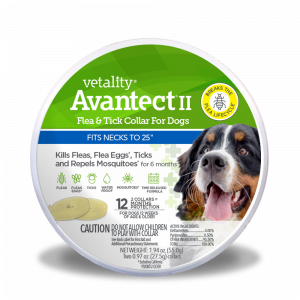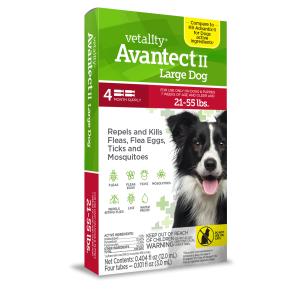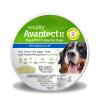Vetality
Locating a Reputable Animal Shelter or Rescue
Shanna Stichler
October is National Shelter Dog Month, so in honor of adoptable dogs everywhere, here are a few tips for locating reputable places to find your next best friend.
COMMON ONLINE SCAMS
Most of us start the search for our next pet online, especially when looking to adopt. We visit Petfinder or our local shelter’s website and check out all the adorable dogs in need of forever families. While the internet has certainly made locating adoptable dogs much easier, it has also made it easier for unscrupulous people to commit fraud. According to the ASPCA, one of the most common scams happens when someone posts a “Free to Good Home” ad somewhere online, but then asks the buyer to pay for shipping costs. This is a huge red flag, so run far away if you come across an ad like this. Another example is when a breeder poses as a rescue and charges adopters hundreds of dollars in adoption fees. Legitimate rescues don’t ever charge that much. All they usually ask for is enough to cover spaying or neutering. Often, these groups put a lot more money into a dog than they will ever get back in adoption fees. If someone tries charging $1000 to adopt a dog, they probably don’t have your best interests in mind.
Most rescue groups are legitimate and care passionately about what they do, but how can you be sure a rescue is the real deal? In order to figure this out, it’s helpful to understand what a rescue group actually is.
WHAT IS A DOG RESCUE?
Rescue groups generally take in dogs from animal shelters or from individual owners who need to rehome them for whatever reason. Many rescue organizations don’t have their own housing facilities, so they place dogs with foster families or in private boarding kennels. Since rescues typically have fewer dogs than most shelters, they can take more time to find each animal the best home possible. As a result, many rescues have extensive screening processes which can make adoptions take a bit longer. They also have the time to evaluate their dogs more thoroughly and train them more extensively. Adoption fees are often a bit higher than they would be at most animal shelters because of the extra effort that goes into each dog. There are also a few individuals who rescue dogs via posts on Craigslist or other online forums. Adopting dogs from either a rescue group or an individual rescuer is perfectly fine as long as you take a few precautions.
THINGS TO LOOK FOR
Verify that the rescue group or shelter is an incorporated charitable organization. Most legitimate rescue organizations choose to get registered as a non-profit for both tax reasons and credibility. You can check with your state’s government website if you’d like to know more about an organization’s non-profit status. Additionally, rescue groups that bring in more than $5000 annually must file 501C3 tax forms, according to Petfinder.
Make sure to familiarize yourself with the adoption process. If you adopt a dog from either a rescue or animal shelter, you will be required to fill out an application either online or in-person at an adoption event. Often, you’ll need to provide personal references, vet references, and your landlord’s contact information if you rent. While most shelters don’t have the staff for this next step, dog rescue groups like to do a home check, where they send a volunteer to visit your home to be sure it’s suitable for a dog. You may also be required to provide your employment information and sometimes even a driver’s license number. All these steps may seem a little extreme, but the people involved with animal rescues want to ensure the dogs in their care go to the best possible homes.
Once you’re approved to adopt a dog, the rescue or shelter will have you sign a contract. Do not ever pre-pay for an adoptable dog! Also, never provide your social security number or credit card information! If a rescue group doesn’t seem interested in checking you out as a prospective adopter, they may not be the best organization to work with.
NEVER PRE-PAY FOR A RESCUE DOG
We know we already mentioned that, but we’re repeating it again because it’s important. Don’t shell out any of your hard-earned money until you’re about to walk out the door with your new dog. Reputable rescues don’t ask for application fees or pre-adoption fees. They should be willing to show you available dogs at no charge. You should certainly expect to pay an adoption or donation fee of anywhere from $75 to $350, but not until you’ve had a chance to choose your new dog in-person and sign the adoption contract.
The ASPCA warns that pre-paying for a dog online is a way to inadvertently support a puppy mill or simply become the victim of online con-artists. If you do actually get a puppy this way, it likely won’t be the one you were promised.
MEET YOUR DOG BEFORE YOU ADOPT
Most rescues want new adopters to meet available dogs in-person. They’ll usually only show you the ones they think will be a good fit for your home and lifestyle. This helps both you and the rescue group or animal shelter. Looking at a lot of cute dogs can be a bit overwhelming, so it’s nice to have people who know the dogs best narrow down the possibilities. Personally, I don’t like wasting time looking at dogs I already know won’t be ideal for me. For instance, if I know I don’t want a baby puppy, I don’t want to spend time looking at and turning down little adorable puppies. If you have children or other dogs already, reputable rescues or shelters will want to meet them when choosing possible dogs for you. Some adoptable dogs wouldn’t be ideal for homes with small children, cats or other dogs, and it’s a good idea to rule them out before getting too attached.
QUESTIONS TO ASK BEFORE ADOPTING
Before signing paperwork or turning over any money, it’s important to ask some questions about your potential new family member. Ask about the level of training your new dog has had, as well as behavior around dogs, cats, and kids. Also, ask whether or not he is calm and quiet in a crate. I even like to ask what food a dog is eating and what her favorite toys are! You can also ask for things like referrals to local dog trainers and veterinarians. Any rescue or animal shelter should be more than willing to provide answers to these questions. Well, possibly not about the toys, but everything else shouldn’t be a problem.
Since all dogs entering either a rescue or animal shelter have been vaccinated, altered, and tested for Heartworm, it’s a good idea, and perfectly reasonable, to ask for a dog’s medical records prior to adoption. Sometimes, dogs may have pre-existing medical conditions. Maybe they are an older dog with arthritis, for example. If you’re planning on adopting what many rescues call “special needs” dogs, reputable rescues or shelters will make sure you know beforehand. Either way, it’s helpful to know as much as possible about your new friend before he comes home.
It’s also important to be sure a rescue or shelter will take the dog back if for some reason it doesn’t work out. Any legitimate rescue group or shelter will have a clause in their adoption contract stating that the dog must come back to them if you can’t keep him for any reason. It’s important to check for that inclusion when reading the adoption contract.
Hopefully, this post will be helpful to anyone interested in adopting a dog from either an animal shelter or rescue group. Adopting a dog can be a fantastic experience, and many people find wonderful new companions this way.
FURTHER READING
For a national database of rescues, animal shelters, and adoptable pets, check out
Tevra Pet also locally supports the work of the Nebraska Humane Society











